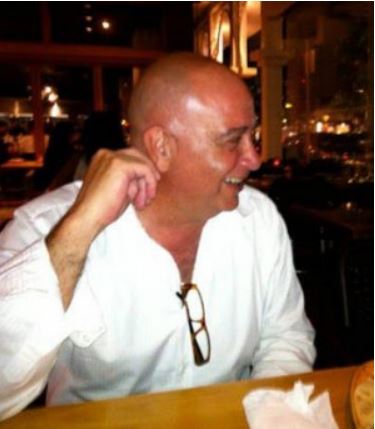Michael Calleja of Melbourne – sentenced to 15 years in absentia for cocaine-trafficking for the ‘Ndrangheta

Nicola Ciconte, one of the Italian-Australian sentenced in absentia to 25 years in prison in Italy. He escaped extradition to Italy but died a year later while on the run in Cambodia.
My previous post refers. Michael Calleja was born in Malta and almost certainly has connections here. This is from The Sydney Morning Herald, 16 June 2012:
Three Mafia figures living freely in Australia and labelled “extremely dangerous” by Italian authorities have been sentenced in absentia to long jail terms for international drug trafficking.
The Saturday Age can reveal that Australian men Nicola Ciconte, Vincenzo Medici and Michael Calleja have been convicted and sentenced in Italy for their role in a plot to smuggle up to 500 kilograms of cocaine into Australia.
Australian and Italian police have received intelligence that the cocaine – which has never been recovered – was meant to be smuggled from the port of Melbourne by corrupt workers and taken by truck to a Sydney container yard, where some of it was to be hidden in a second truck and driven to Adelaide.
Ciconte, 56, formerly of Victoria but now living on the Gold Coast, was sentenced to 25 years’ jail last month by a Calabrian court for his role in the conspiracy.
The court heard that Ciconte, along with a small group of Calabrian Mafia bosses, had worked as “promoters, directors, organisers and financiers” of a plan to import cocaine provided by the Colombian cartels to Australia between 2002 and 2004.
Medici, 47, of Mildura, and Calleja, 53, of Melbourne, were found to have helped Ciconte in the plot and were sentenced to 15 years’ jail.
Assistant prosecutor Maria Vittoria De Simone told The Saturday Age that Italy would be pushing the Australian government to extradite the convicted men.
“We will be strongly pursuing the extradition,” she said. “These individuals have been convicted of heavy sentences in a huge trial and they are extremely dangerous.”
The revelations of the trio’s convictions and sentences highlights a common but mostly untold story of global organised crime investigations, in which suspects often escape justice due to jurisdictional hurdles.
During the Italian police inquiry into Ciconte, Medici and Calleja, the Australian Federal Police launched its own drug trafficking inquiry into the trio.
But key evidence from Italian police, including the testimony of an informer, could not be used in Australian courts and the Commonwealth Director of Public Prosecutions advised the AFP against charging the men.
Before the Australian trio were convicted and sentenced in absentia last month, Italian prosecutors had alleged in court that the men had conducted a trial drug run using an empty shipping container before the actual operation.
The prosecutors alleged that Ciconte “maintained contact with associates in Vibo Valentia, supplying the materials for the trial containers in collaboration with Medici; Calleja … made several trips from Australia to Calabria to determine the details of the shipments and the payments”.
“The ultimate goal for Ciconte, Medici, Calleja [was] to supply the imported cocaine in the Australian market”.
Ciconte’s key contact in Italy was Calabrian Mafia boss Vincenzo Barbieri, who was jailed for his role in the plot. He was gunned down in March 2011 after his release.
Between 2002 and 2004, Italian authorities tapped phone calls between Barbieri in Calabria and Ciconte in Victoria and filmed meetings in Italy between Ciconte and his Australian associates and Barbieri and other mafia figures.
The trio’s sentencing in Italy also highlights the ongoing presence in Australia of the Calabrian Mafia, known as the ‘Ndrangheta, or Honoured Society, which established deep roots in NSW, Victoria and South Australia through migration during the last century.
Ms De Simone told The Saturday Age: “We urge the Australian authorities to remember that ‘Ndrangheta … represents an enormous risk for countries far from Italy. The ‘Ndrangheta … runs the international cocaine market. It doesn’t do its business in Calabria but around the world. It has infiltrated all economic sectors and it controls voting and political candidates at a national and international level. I urge the Australians not to underestimate this organisation. Otherwise it will be too late.”
Ciconte, the son of Calabrian migrants who settled in country Victoria in 1955, forged his Mafia ties via family connections back in Italy. Vincenzo Medici’s father was a well-known Mafia figure who was murdered in the early 1980s.
Ms De Simone said a request to extradite the trio would be made to Australian Attorney-General Nicola Roxon. Ms Roxon’s department told The Saturday Age it did not comment on extradition matters.
In a separate case also targeting Australian crime figures with links to the Mafia, NSW drug trafficker Pasquale Barbaro was last month sentenced to life in prison for his role in organising an importation from Italy.
